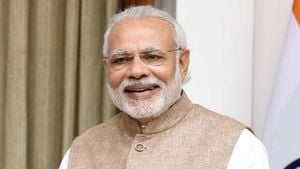Medical Malpractice and Negligence: A Closer Look at Judicial Challenges
When individuals go to the hospital or step inside a doctor's office, they're often at one of their most vulnerable points. We trust healthcare professionals to provide safe, effective care. Yet, increasing reports of medical malpractice and negligence highlight significant flaws not just within the healthcare system but also within regulatory frameworks meant to protect patients. One particularly alarming incident involves Jonathan Graul, who suffered serious injuries after being struck by another driver. His interactions with insurance and medical experts following this life-altering accident reveal troubling patterns associated with medical testimony and accountability.
Graul was involved in a significant car crash on December 2017, leading to traumatic brain injuries and various other health issues. When he sought compensation from the insurance company, Aviva, he faced tough opposition—not just from the other driver but from medical professionals hired to question the legitimacy of his injuries. Graul was shocked as he listened to testimony from two doctors arguing his traumatic brain injury not only didn't exist but had somehow resolved. These medical experts had been retained by Aviva to provide opinions supporting the insurance company's position and oppose Graul's claims.
"It was dirty," Graul recalled, clearly agitated by the attack on his credibility as he sought the help he needed. The efforts to undermine his health were even more frustrating considering over twelve healthcare professionals from various disciplines had supported his claims of injury. Yet there he was, grappling with the aftermath of his accident and battling against the very system meant to protect him.
The unfortunate truth is Graul's story is not unique. Many individuals find themselves at the mercy of medical experts who, rather than acting as neutral arbiters of truth, appear to favor their financial interests and maintain relationships with insurance companies. It begs the question: Is the quality of medical evidence presented to courts sufficiently safeguarded from bias?»
This pervasive issue has raised alarms among advocates for accident victims. Rhona DesRoches, the head of the FAIR Association, which advocates for comprehensive reform of the automobile insurance system, stated, "The quality of the medical evidence used is of serious concern." Many medical experts garnered for court appearances by insurance companies have faced criticism or allegations of bias but often encounter few repercussions. These unchallenged practices raise ominous questions about the integrity of the judicial system and the validity of expert testimony.
Consider, for example, the opinion of Justice G.D. Lemon, who raised concerns over the testimony provided by Dr. Lawrence Freedman, one of the experts brought forth by Aviva. Justice Lemon noted Freedman's reporting seemed less like neutral observation and more like the actions of a paid expert intentionally attempting to obscure significant evidence from the court. For nearly two decades, Freedman's work had made him almost exclusively focused on cases involving insurance, yet he hadn’t treated anyone with traumatic brain injury since 2006.
On the other hand, Dr. Sara Mitchell, another expert for Aviva, was similarly critiqued for her contradictory statements, with one judge referring to her behavior as "alarming." Despite being credited with impressive academic qualifications, her courtroom performance raised serious concerns about her attentiveness and genuine objectivity. Such observations thrust the reliability of hired experts onto the public stage, highlighting the potential for systemic flaws when objectivity is compromised.
The problem deepens when we recognize the underlying economic motivations. Lawyers representing accident victims suggest some medical experts may cater their opinions favorably to insurance companies to secure continuous work. This troubling trend constitutes more than mere ethics violations; it signifies broader systemic deficiencies challenging the balance of justice. After all, if the credibility of medical testimony bends under the weight of financial incentives, the entire basis for supporting injury claims falters. Navigational transparency and accountability become even more pressing with numerous examples of questionable behavior coming to light.
Graul's challenging court experience is emblematic of broader trends faced by many accident victims. Compounding his situation was Judge Lemon's recognition of Graul's debilitating post-accident health hurdles. Yet, regardless of collective medical consensus, the presence of biased expert testimony can undermine even the strongest cases.
Widening the perspective, Graul's case prompted investigations illuminating the experiences of countless individuals locked in protracted disputes over the claims. Many medical specialists who've been found wanting have appeared repeatedly as so-called objective witnesses for the insurance industry, making the need for significant reform staggeringly clear. Individuals like psychologist Dr. Curtis West and physiatrist Dr. Alborz Oshidari have found themselves at the center of controversies surrounding the objectivity of their expert testimony.
Dr. West faced severe criticism, with one judge describing his opinions as almost "useless" after failing to acknowledge substantial evidence. Meanwhile, Dr. Oshidari, recognized as well-acquainted with medical testimony, continues to assert his objectivity, arguing any criticisms stem from misunderstandings by adjudicators.
Nevertheless, many advocate groups argue it's time for increased oversight of medical experts serving as witnesses, demanding stricter regulations on the criteria and motivations behind their appearances. They argue such measures could adequately protect patients, mitigate biases, and reinforce the judicial framework surrounding medical malpractice cases. After all, with systemic vulnerabilities on trial and patients at their most desperate, meaningful reform is not just desirable, it's imperative.
Despite the challenging climate, some believe positive change is within sight. Efforts to address accountability range from rigorous inspections of professional standards to advocating for more severe penalties for medical professionals whose testimony falls short of fostering impartiality. Ensuring fair treatment for accident victims can only improve outcomes for individuals without access to resources to fight back.
With greater calls for accountability and transparency, the hope for improved relationships between medical professionals, the insurance industry, and patients continues to gain momentum. Establishing regulations and genuine oversight could transform the future of medical malpractice cases, leading to healthier, fairer interactions. While hopes may seem lofty, each story like Graul's reinforces the importance of addressing inconsistencies within our systems and holding every party accountable for the well-being of patients.
Only through conscientious reform can we begin to unearth sustainable solutions to these pressing challenges. This kind of change can help restore trust within the healthcare system—an institution meant to care for patients, not put them through additional stressors, especially when they are at their most vulnerable.



